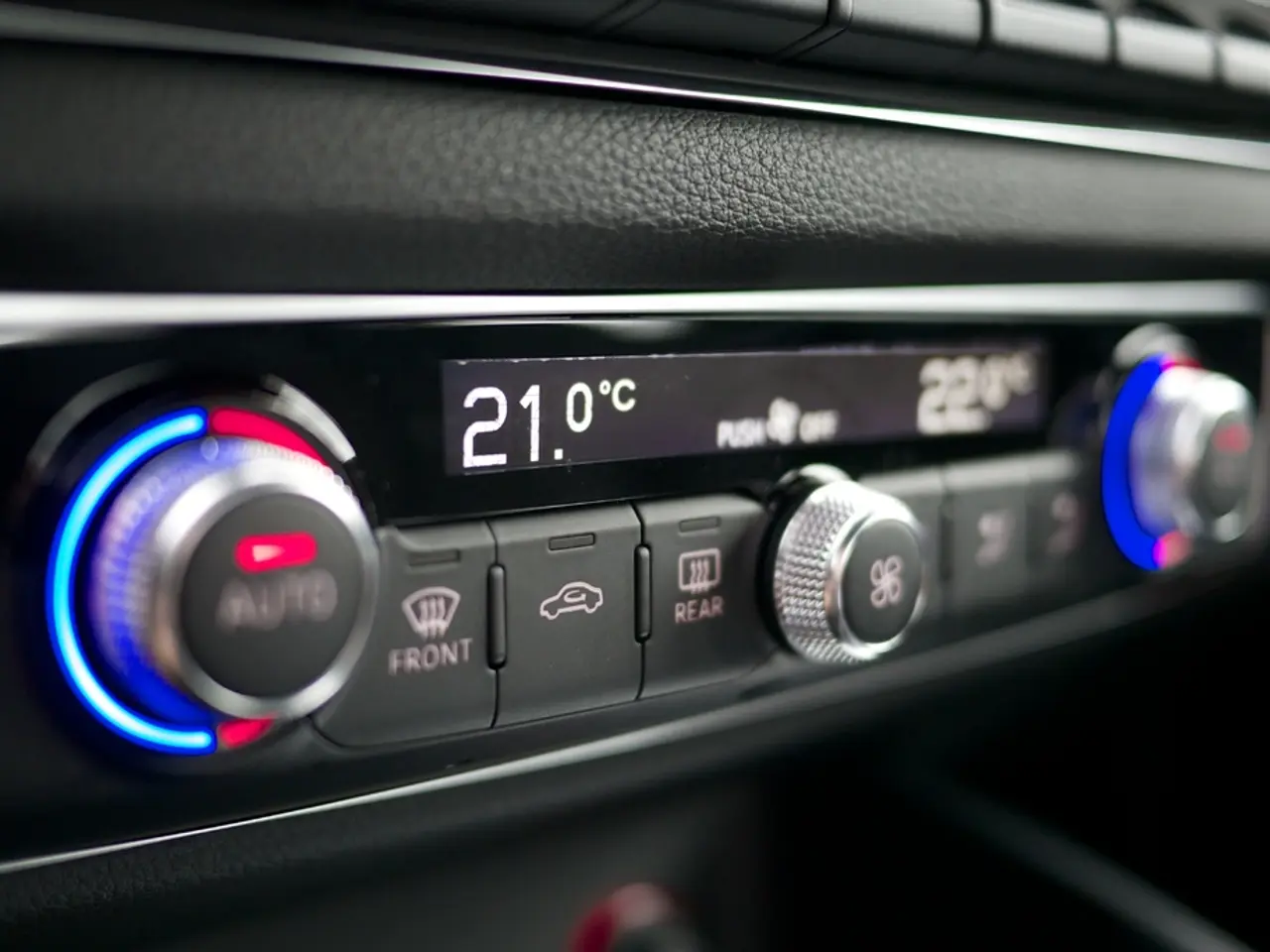Efficient Boiler Advisor Reveals Ideal Temperature Settings for Minimizing Energy Costs
In an effort to reduce energy bills, homeowners can make significant improvements to their boiler's efficiency through a series of practical strategies focusing on tuning, flow rates, and temperature adjustments. Here's a step-by-step guide to help you get started.
### 1. Fine-Tune Boiler Controls and Monitoring Regularly monitoring your boiler's operation can help identify inefficiencies and allow for timely adjustments. Utilise advanced technologies such as IoT devices and data analytics for real-time control and performance optimisation. Integration with Building Management Systems (BMS) enables coordinated control of heating demand versus boiler output, avoiding energy waste [1].
### 2. Adjust Flow Rates and Balance the Heating System Aim for a 20°C temperature differential between the flow (incoming) and return (outgoing) water pipes on radiators. This differential maximises condensation and efficiency in condensing boilers. This is typically done by adjusting the radiator lockshield valves while measuring pipe temperatures. Using auto-balancing thermostatic radiator valves can simplify this process by automatically adjusting flow rates to maintain balance [2].
### 3. Optimize Hot Water Temperatures Lowering the flow temperature helps the boiler operate in condensing mode longer, which improves fuel efficiency. Most boilers can be manually adjusted to reduce flow temperature, emulating load compensation boilers that adapt to demand [2]. Set the temperature high enough for comfort but not excessively hot to reduce energy consumption.
### 4. Maintain Water Quality Ensuring clean, uncontaminated water within the heating system prevents heat transfer issues and maintains efficiency. Regular professional checks and flushing (power flush or gravity flush) remove impurities such as oxygen ingress or discolored water, improving heat exchange and reducing energy losses [2].
### 5. Leverage Heat Exchanger Efficiency Modern condensing boilers use dual heat exchangers designed to recover heat from flue gases and vapor condensation, significantly increasing efficiency. Maintaining the heat exchanger clean and operational preserves this efficiency. Heat exchangers are designed for counterflow water and gas flows, maximising temperature differentials and heat transfer [3][4].
---
**Summary Table for Homeowner Adjustments:**
| Aspect | Adjustment Method | Energy Benefit | |-------------------------|-----------------------------------------------------|---------------------------------------------| | Flow Rates | Balance radiator valves for ~20°C temperature drop | Maximises condensing boiler efficiency | | Hot Water Temperature | Reduce flow temperature manually | Extends condensing operation, saves fuel | | System Monitoring | Use IoT or manual checks for boiler tuning | Avoids energy waste and downtime | | Water Quality | Regular flushing and inhibitor checks | Improves heat transfer efficiency | | Heat Exchanger Care | Maintain cleanliness and proper operation | Preserves high thermal efficiency |
By following these practical steps, homeowners can notably reduce their energy bills through improved boiler efficiency and effective system tuning [1][2][4]. It's important to ask the installer about fine-tuning the boiler and setting up the right flow rates. To adjust the flow rate, find the radiator symbol on the boiler and turn it down. Look for a hot water symbol (usually a tap) on the boiler to adjust the hot water temperature.
[1] Building Research Establishment (BRE) Trust, "Smart Controls for Heating," 2020. [2] Energy Saving Trust, "Boiler Maintenance Tips," 2021. [3] Heating Help, "Heat Exchanger Efficiency," 2019. [4] National Energy Foundation, "Improving Boiler Efficiency," 2021.
- Advancing technology can help improve the efficiency of your home-and-garden setup by leveraging advanced features such as IoT devices and data analytics for smart control and optimisation of personal-finance resources in managing your boiler's operation.
- For homeowners seeking to streamline their finance management, it's pivotal to address the energy sector by optimising their boiler's efficiency. One such strategy is to invest in the industry of Building Management Systems (BMS) for coordinated control of heating demand versus boiler output.
- When balancing your homemaking budget, don't underestimate the significance of managing energy costs. Maximising the condensing efficiency of your energy-consuming appliances like condensing boilers can be achieved by various means, including fine-tuning hot water temperatures and adjusting flow rates.




